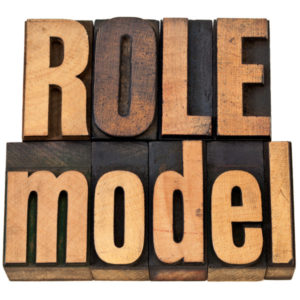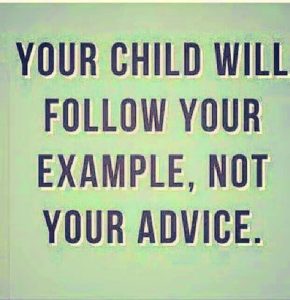 The Last Segregated Hour: The Memphis Kneel-Ins and the Campaign for Southern Church Desegregation by Stephen R. Haynes
The Last Segregated Hour: The Memphis Kneel-Ins and the Campaign for Southern Church Desegregation by Stephen R. Haynes
My rating: 5 of 5 stars
Haynes, a Rhodes College professor, highlights the segregation crisis of 1964-1965 in Protestant churches in the South by telling the story of the “Kneel-In” campaigns across the south, primarily composed of college age student protestors, particularly in Memphis and particularly at the Second Presbyterian Church in Memphis, a suburban wealthy white church, that actually started in downtown Memphis but as it grew, the church moved to the suburbs. I love this book for many reasons. Kneel-Ins were similar to the “Sit-Ins” of those days that happened at cafes and diners to protest segregation. Kneel-Ins were non-violent prayerful protests of segregated churches. Haynes says “Unusual features of the SPC Kneel-Ins were its duration, the prominent role played by white students, the low profile maintained by the church’s ministers during the crisis and the church schism that resulted.” The schism being the split that inevitably resulted when the church FINALLY welcomed desegregation which resulted in the hardliners (the elders and their followers) that had stood staunch against integration, moved out to start a new church, “Independent Presbyterian Church” also of Memphis. Both churches are still in Memphis today. Both are desegregated now, and both have a very active role in the local area in fighting poverty and reaching out to marginalized citizens of their city. Both have made some sort of public and/or private apology to kneel-in participants who back in ’64-’65 were not allowed in their churches, first at SPC and then later at IPC once SPC became integrated. BUT the road to this repentance (and very well to their redemption) was paved with unbelievable racist acts and eventual imploding of its members. So many things to say, but I shan’t make this review itself-a book. For ONE thing, it’s amazing to me that ANY church can allow men (or women, but in this case-men) to control the church with an iron fist, putting their own personal agendas above everyone and everything even when their agenda is downright sinful. It is amazing to me that pulpit ministers can actually be hired by churches with the singular purpose of keeping them in a puppet role. In the case of SPC in the 60’s, the pulpit ministers had absolutely no influence or override ability with the “session elders,” the latter of whom wielded their racist beliefs with vehemence and an intensity that was incredibly awful. And furthermore that those pulpit minister would be so very cowardly and perhaps so in fear of losing their jobs that they would do nothing to stand up to the tyranny of their elder pharisees, who in their case, were just plain wrong! Many of these elders were successful business men in the area and had lots of money, and with that money came social and political power. They exploited that shamelessly to achieve their ends and agendas both inside and outside the church. Mostly the white students that participated in the Kneel-Ins attended Southwestern University, the majority of funds of which came from parishioners at SPC. Southwestern is now Rhodes College in Memphis. Those students were threatened, and nasty letters full of lies were mailed to their parents by SPC elders about their “clandestine” activity in the Kneel-Ins and their shamelessness in standing alongside black students. The black participants of the kneel-ins were mostly from Memphis and attended black churches in the area. Many of them were also college students but not at Southwestern since it had yet to become an integrated college. I think one of the main themes this book highlights are Christian Casualties. Casualties of churches. This was surely ONE of the ways we Christians and our churches produced casualties. There are many others. But surely this was a big one. When the church which espouses Jesus love and the gospel as the way to eternal life and the blueprint for truth and justice, but yet doesn’t allow blacks to enter their church, yes, absolutely, many kids and young people are going to make the decision to leave the church. And in many cases, that is exactly what happened here. And one has to wonder what has been the ripple effect of this racist climate of churches (in the 50’s and 60’s) over the course of a century? How many lives have been shaped, lost or derailed because people who called themselves “Christians” looked very much like sinners. It’s one thing to be a sinner and act like a sinner. But when you are a Christian and act hatefully and selfishly, you, more than the sinner, will lead people away from God. Haynes wrote with regard to SPC and other churches like them: “As it became clear that segregation could not be sustained in the institutions that shaped their lives Monday through Saturday, they were determined to make Sunday worship in the South the last segregated hour.” Different questions the book asks US-the reader: 1 “Do I have the courage to stand up to blatant wrongs being committed by people who are supposedly a messenger of God? 2 If I CAN’T change that situation, and if it is one that consumes my place of worship, therefore hampering greatly the witness of that church to the community and the world, do I have the courage to leave and go somewhere else? 3 If I were in that wealthy white church in the 60’s would I have been a participant of the Kneel-Ins along side my black brothers and sisters or would I have been hiding under the tall steeple of that church, huddling inside the warm sanctuary with “my people,” while the elders of my church stood arm in arm on the front steps-guarding the entrance to keep black people out? Where would I have stood? 4 What about today in my church? Are there people of color there? What am I doing to be a light for Jesus in order to bring people toward Jesus (including my children) as opposed to away from Jesus? Does my life now model one for others that makes them wonder who is the God that she serves? I want to know Him. Or does my life model for others one that says “I want no part of that woman’s christianity?” Read the book. Learn. Grow. Change.

